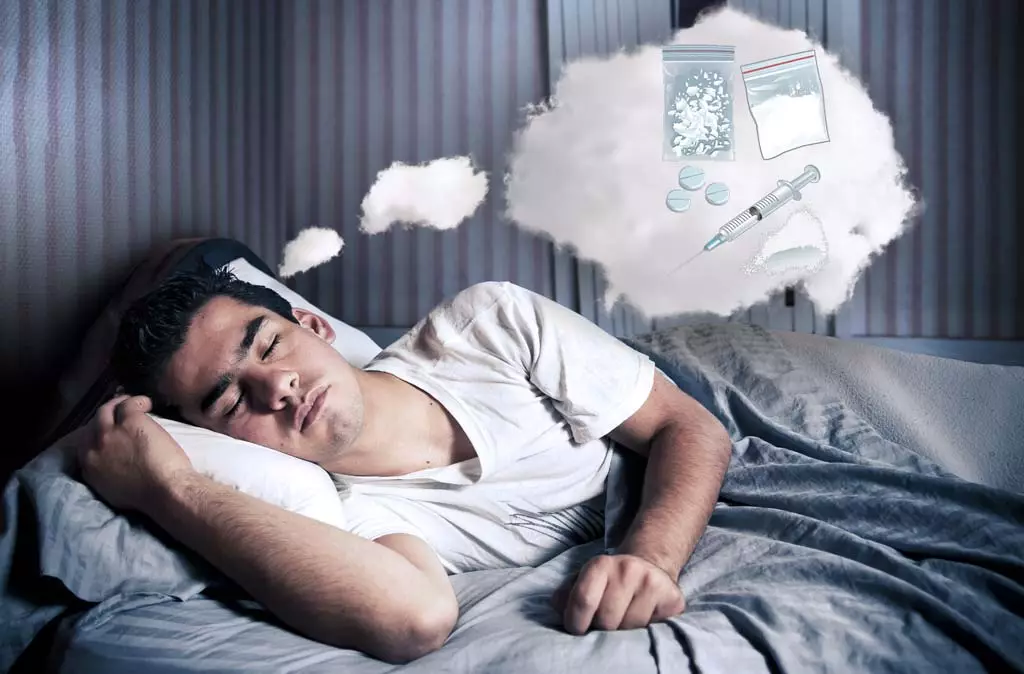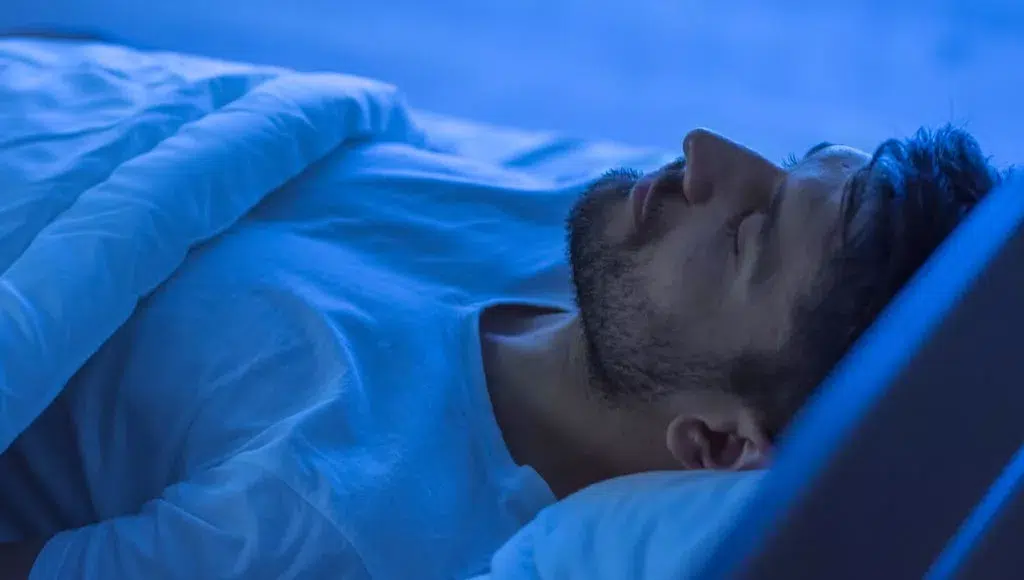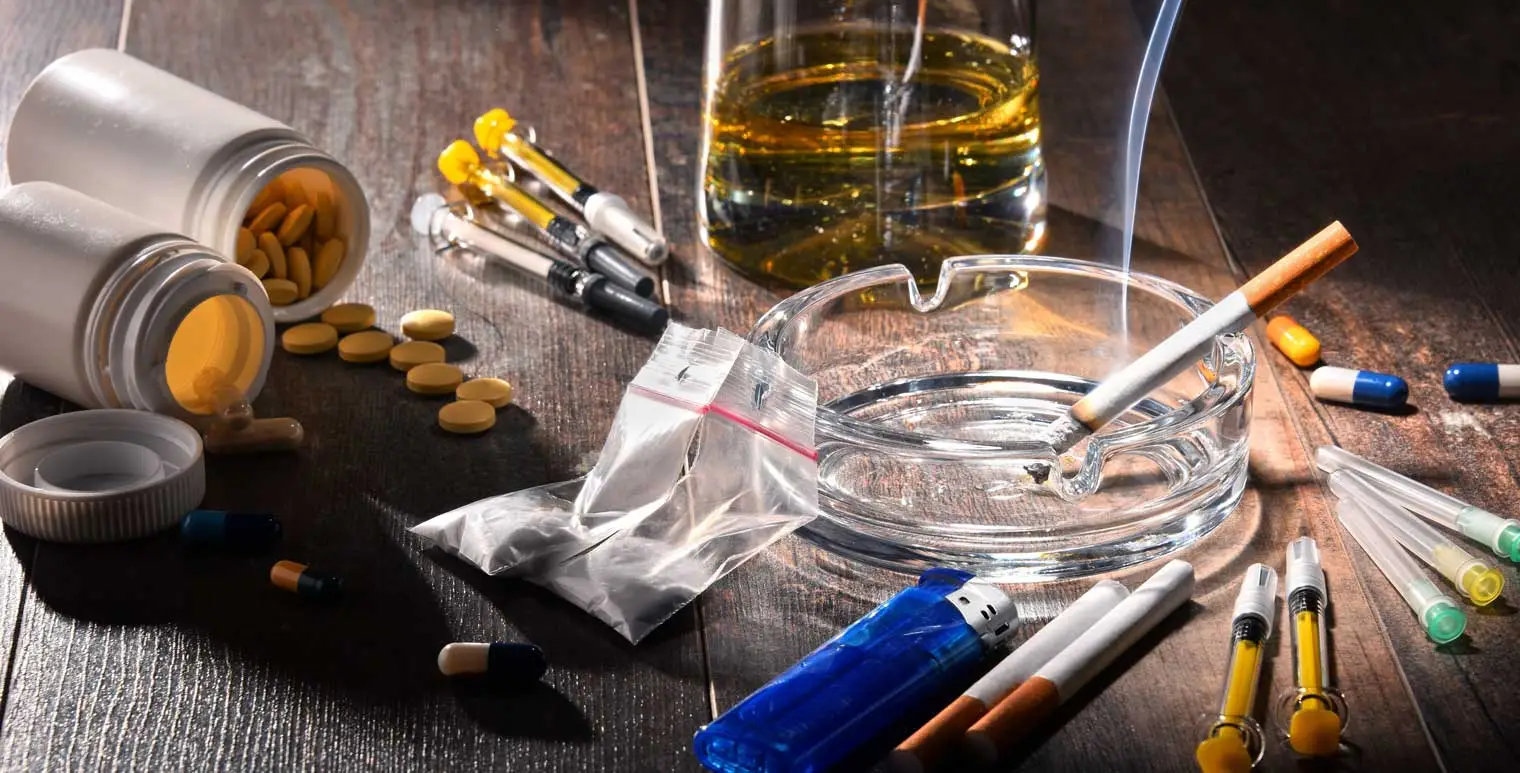
Drug Dream Meaning
Coping With Drug Dreams During Addiction Recovery
Table of Contents
When you halt substance abuse and enter addiction treatment, your brain and body can react in a variety of ways. Most people are aware of drug and alcohol withdrawal, which affects virtually everyone starting addiction recovery. But other reactions are also possible. One additional problem you may experience is something known as a drinking or drug dream. In this kind of dream, you vividly reexperience the act of drinking or taking a drug.
What do drug dreams mean and why do they occur? Research shows that they are a mental byproduct of your efforts tot get sober. While they can be deeply unsettling, they do not necessarily reflect a real desire to return to substance use. With help and support, you can weather the effects of drug dreams and keep working toward sobriety.
Free Mental Health Assessment
What Is a Drug Dream
What is a drinking or drug dream, and how can you tell if you are having one? In the typical dream, you:
- Drink alcohol or take the drug that is the source of your addiction
- Feel a sense of disbelief that you have done such a thing
- Experience unpleasant emotions such as remorse, guilt or fear
When you wake and realize that you have been dreaming, you usually feel a sense of relief.
You may experience this kind of dream during recovery from any form of substance addiction. Roughly one in every three people in recovery are affected. Drinking and drug dreams occur most often in people who have severe forms of addiction. These dreams are also sometimes referred to as relapse dreams. They can be classified as a type of nightmare.
The Basis of Drug Dreams in Recovering Individuals
What is the basis of a drug dream? In other words, why does this kind of dream occur? Research shows that answer to this question lies deep within your brain.
If you are affected by addiction, your brain has undergone significant changes in the way it functions. These changes produce a physical dependence on the substance in question. They also produce an emotional or psychological dependence. Together, physical and psychological dependence can produce powerful drug or alcohol cravings. In turn, these cravings push you to seek out more drugs or alcohol to use.
As it turns out, the part of your brain responsible for triggering cravings also does something else. Namely, it is responsible for producing dreams. For this reason, if you are in recovery, the act of dreaming can also activate your substance cravings.
What Do Relapse Dreams Mean
Is there a meaning behind your relapse dreams? Yes and no. These kinds of dreams occur most often in the earlier stages of substance recovery. As your treatment progresses, they tend to affect you less and less. This makes sense when you consider your circumstances at the start of substance treatment.
When treatment begins, you are just beginning to get the help you need to recover from addiction. This means that you have not have much time to address the destabilizing effects of continued substance cravings. In a very real sense, your relapse dreams are just a reflection of this state. As your treatment helps dampen down your cravings, conditions that favor drug dreams occur less often.
At the same time, relapse dreams are a cause for concern. When present, they can increase your involvement in negative states of mind. They can also make your substance cravings more intense. In turn, both of these things can make it harder for you keep your addiction recovery going.
Are Drinking and Drug Dreams Common for Sober People
Dreams about drinking or taking drugs are not common in people with no history of using drugs or alcohol. They may occur in people unaffected by addiction who have a history of drinking or taking drugs. However, in these circumstances, drinking and drug dreams tend to hold no particular charge.
But in some people who have gone through treatment, such dreams can continue to occur long after sobriety is established. They sometimes last for years. In some cases, they may recur on and off for life.
Night Terrors and Dreaming of Drug Use
People affected by addiction are at increased risk for a sleep disorder sometimes known as night terrors. Common symptoms of an episode of this disorder include:
- Experiencing powerful feelings of fear while asleep
- Flailing, kicking, shouting or screaming in response to these feelings
- Having difficulty waking up
- Not being able to recall what happened to you when you wake up
Are night terrors the same thing as drug dreams? No. Their symptoms and effects differ significantly from those of the typical drug dream. However, during recovery, you may experience both of these issues at one time or another.
24 Hour Mental Health Hotline
Steps to Get Rid of Drug or Drinking Dreams
How can you get rid of drug or drinking dreams? There is no single, surefire method of achieving this goal. However, several steps may help increase your chances.
Treatment Options
Treatment for drug dreams may include medication, psychotherapy or a combination of the two. In alcohol treatment, the medication used to help prevent relapses may have an indirect effect on drug dreams. Similar benefits may be gained from the relapse prevention medications used in opioid treatment.
Today, researchers are also looking at a more direct medication treatment. The name of this medication is prazosin. Prazosin works by helping shut down the pathway in your brain responsible for drug dreams. There is evidence to support its effectiveness. However, further study is needed.
Existing forms of psychotherapy might also be helpful. A treatment such as cognitive-behavioral therapy may not stop drug dreams from occurring. However, it may help you cope with the feelings triggered by such dreams. Today, there are also efforts underway to develop therapy specifically designed to help people affected by dreams about substance use.
The Importance of Restful Sleep in Addiction Recovery

A range of significant sleep issues are common in people affected by addiction. This is due, in large part, to the effects of drugs and alcohol on brain chemicals called neurotransmitters. Sometimes, sleep problems help set the stage for addiction. However, as with drug dreams, addiction may help set the state for sleep problems.
In rehab programs, there is often an emphasis on improving the quality of sleep. This can be especially important in the early phase of your treatment. Experts offer a variety of tips on getting rest and relief in early addiction recovery. One big step is establishing a sleep routine that supports your health and well-being. What are healthy sleep routines? They typically consist of things such as:
- Setting aside enough time to get adequate sleep
- Sticking to a consistent bedtime
- Rising at the same time every morning
A number of other tips may also be useful in helping you sleep better. Specific actions you may want to take include:
- Exercising regularly
- Sleeping in a dark, quiet place with minimal potential distractions
- Maintaining a comfortable temperature within the room while sleeping
Addressing Dreams and Discomfort in Residential Rehab
Some people can recover from addiction while participating in an outpatient program. However, if you have moderate-to-severe addiction symptoms, you may need a residential program, instead. In either setting, a well-designed rehab program can help you cope with your drug dreams. But in some cases, addressing dreams and discomfort in residential rehab may be easier. That is true because you will have more overall treatment time available.
Immediate Placement for Mental Health Treatment
Turn to Emerald Isle for Support in Overcoming Drinking and Drug Dreams
Dreams about using drugs or alcohol are relatively common among people in addiction recovery. Your odds of experiencing them are highest if you are heavily affected by addiction. Generally speaking, drug dream meanings are closely tied to the presence of substance cravings. Like your cravings, drinking and drug dreams tend to have the biggest impact early in treatment.
It is crucial to establish sober supports to dispel drug and drink dreams. Depending on your situation, medication may be used to help you reach this goal. You may also benefit from psychotherapy. The effects of medication and therapy on drug dreams are often indirect. In other words, these treatments may help you cope with your dreams rather than eliminating them. Researchers are also looking for options that have a more direct beneficial effect.
Need support to overcome dreams about drinking or using drugs? Turn to the addiction specialists at Emerald Isle Health & Recovery. We feature comprehensive treatment options for all forms of substance addiction. Whether you are affected by drug dreams or any other issue, we can devise a suitable recovery plan for your situation.
Emerald Isle is also your source for high-quality mental health treatment. Such treatment can be vital to your addiction rehab efforts. That is true because many people recovering from addiction have additional, serious mental health issues.
To learn more about how we treat drug dreams and other addiction symptoms, just call us today. You can also fill out our brief online form. We are dedicated to helping people from all walks of life regain their sense of health and well-being.








